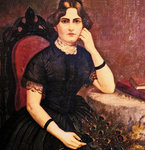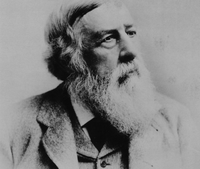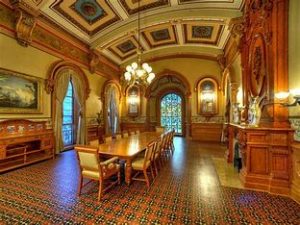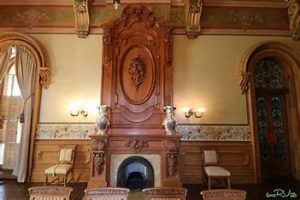
The Importance of Learning from History
[Post from Chris Back, edited by Dr. Jerry Back]
I have a story to tell you.
Years ago, I read a book from the church library about the Hay House in Macon, Georgia. You can go on Google or Bing maps and see a StreetSide view and there is a link to see the interior.
In the early 1850s, there was a 17-year-old southern belle, Anne.[i] The family were Christians.
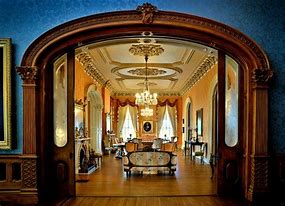
Well, William showed up and was clearly smitten by Anne. Her parents and aunts said she should marry him because he was rich. Well, William[ii] was the shyest guy around, with no personality. Anne said she wanted to marry for love. The family all said to not worry about that. Love would come later. The main point was that he was rich. He owned stocks in oil and railroad, I think. So, William continued to show his interest, but Anne wanted to marry for love. Finally, Anne gave in and did as she was told and married him.
He had promised to take her to Europe for their honeymoon and made all the arrangements. After the wedding, they took off, but on the way to New York to board the ship to Europe they had to stop in Philadelphia. William had a board meeting to attend. When they got to Philadelphia they got settled into a hotel room, and William took off for the board meeting, which lasted about four days. And Anne was in the hotel room. She began to wonder what she had gotten into. Finally, William was free from the board meetings and they took off for New York. Well, in New York he had another board meeting to attend, but this one lasted only about two days. FINALLY, they boarded the ship, and off they went. Anne didn’t know if she loved this guy, and William spent time trying to figure out how to make her love him.
William had promised to build her a house in Macon, Georgia when they got home. I think their first stop was Paris to see the Louvre and other galleries. Whenever they saw a painting they liked, they bought it and had it shipped home. By this time Anne was beginning to realize she was in love with him. How nice! He was very kind, thoughtful, and considerate. Their last visit was to Italy: Venice, Florence, and Rome. They continued to buy whatever they liked and shipped it home. The Europe trip lasted two years.
When they got home to Macon, William began plans to build her dream house, located next door to where the two aunts lived (the two houses next door). Italian Renaissance! (The paintings from Europe are still hanging on the walls.)
How the house missed being burned from Sherman’s March I wouldn’t know. Sometimes owners saved their homes by offering them as hospitals for the Union army or providing meals for the officers. Kindness rather than hatred. There is another mansion in the neighborhood with white pillars that was also untouched. The neighborhood sits on a hill. Maybe the Yankees did not go up the hill. Don’t know. The area is the home of a law school that was started before the war.
I can’t remember the name or author of the book, and the church where I found it no longer has a library.
History! It breaks my heart what the anarchists are doing today: changing history. (Reminds Jerry of the book 1984.) Tearing down the statue of Grant because they say, he owned slaves.
He didn’t own slaves!!! His family from Ohio were abolitionists. He once said if it wasn’t for the war the slaves in the South would eventually rise up and revolt, killing many whites in the South. His wife inherited 2-3 slaves from her father in Missouri. They escaped after the Emancipation Proclamation.
One big mistake we make in looking back at history is imposing our 21st Century understanding of events in history. A Chris Back original: We must understand the culture at the moment in history in order to learn the message of that moment.
The truth is that Grant was one of the kindest leaders this country has had, and he hated slavery. He also hated lying. When laying siege on Vicksburg in May and June of 1863, escaped slaves poured into Union camps. Grant appointed a chaplain to oversee their needs and find jobs for them where they got paid.
Two things made him very angry: the abuse of a horse and the abuse of a woman. He dearly loved his wife Julia. He never drank alcohol when his leadership was needed, like for a battle. His weakness was in seeing all the lives lost after a battle, laying on the ground. Very depressing. Ron Chernow’s book Grant is very good.
Bet you didn’t know you would be getting a history lesson today!
With love, Chris
Thank you, Chris
(The book about Anne and William could be historical fiction, but too many facts have been substantiated by what still remains of the history of Hay House. The title and author have been lost.
If you know of the book please send us information so we can reference it properly)
_______________________________
[i] Anne, Anna Clark Johnston (Tracy), (1829-1896).
[ii] William, William Butler Johnston, (1809-1887).

